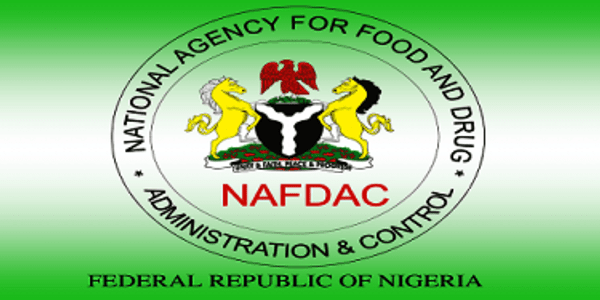Nigeria News
NAFDAC Discloses Dangerous Chemical Used As Food Preservative, Announces Health Risks

The National Agency for Food and Drug Administration and Control (NAFDAC) has warned against the use dangerous chemicals to preserve food items.
The Agency specifically emphasised on the dangers associated with dichlorvos, a chemical commonly utilised by traders to safeguard food from spoilage.
Speaking via a press statement on Sunday, the Director General of the agency, Prof Mojisola Adeyeye stated that the sale of small volume dichlorvos (100 ml or less), sold as Sniper has been banned since 2019 while the sale of the large volume (one litre) is limited to certified agrochemicals outlets.
Adeyeye explained the toxicity of dichlorvos to human health, adding that it could have fatal consequences.
Responding to a viral video showing individuals using dangerous chemicals to preserve food items like beans, stockfish, and crayfish, Adeyeye, urged traders and merchants to desist from using unauthorised chemicals on food meant for human consumption.
“The misuse of dichlorvos poses significant risks to human health, manifesting in both short-term and long-term consequences. Long-term exposure can result in severe health implications, including developmental abnormalities in offspring, memory loss, reduced fertility, and potential carcinogenic effects.
“These adverse effects highlight the importance of adhering to safety guidelines to mitigate the risks associated with dichlorvos exposure,” she said.
She emphasized alternative methods for preserving food, mentioning the use of bio-pesticides as a safer option compared to dichlorvos.
The director general noted that food remaining unspoiled for an extended period might indicate pesticide contamination rather than freshness, unless stored in the refrigerator.
In addition to the banning of the 100 ml size bottle as stated above she disclosed that the Agency has implemented several initiatives such as stakeholders’ sensitization meetings on restricting the direct application of dichlorvos on grains and foodstuffs and thorough laboratory testing to ensure pesticide residues do not exceed maximum limits for both in-country consumption and for exports.
She also added that routine monitoring of stakeholders is also conducted to ensure compliance.
Adeyeye highlighted continued NAFDAC’s commitment to global best practices, including the phase-out of certain pesticides that have been banned in other countries due to proven toxicity.










